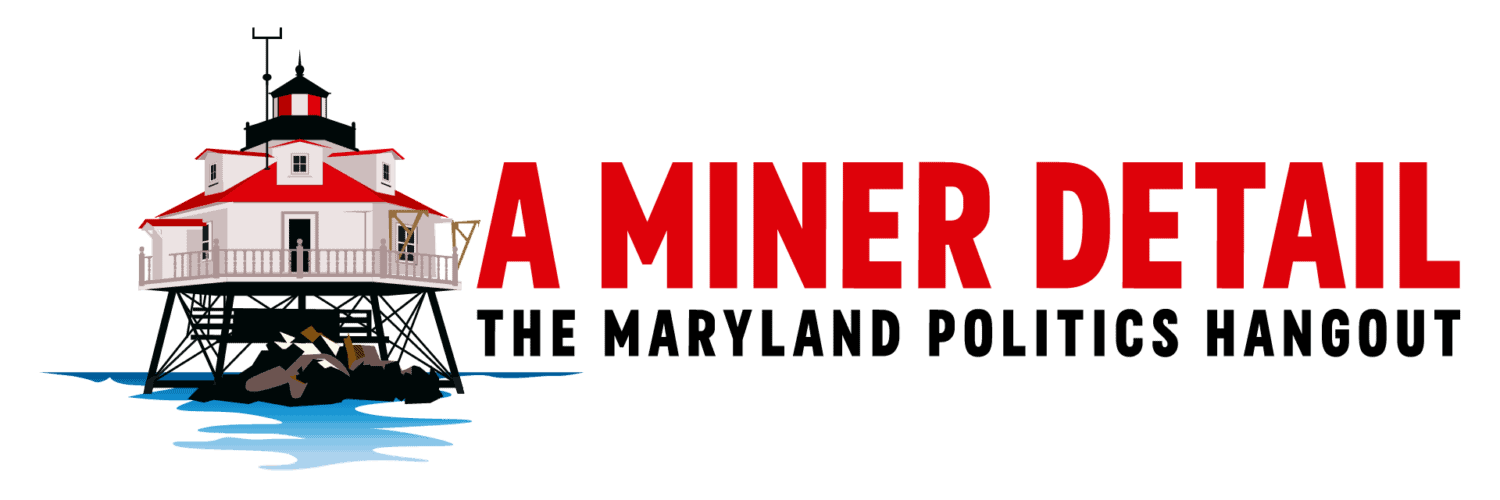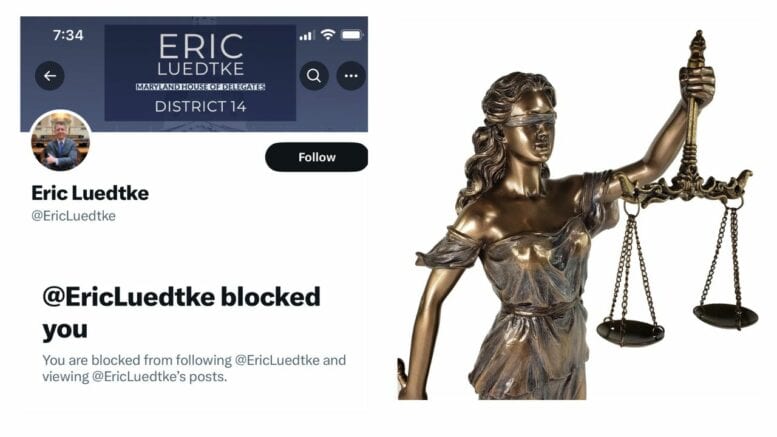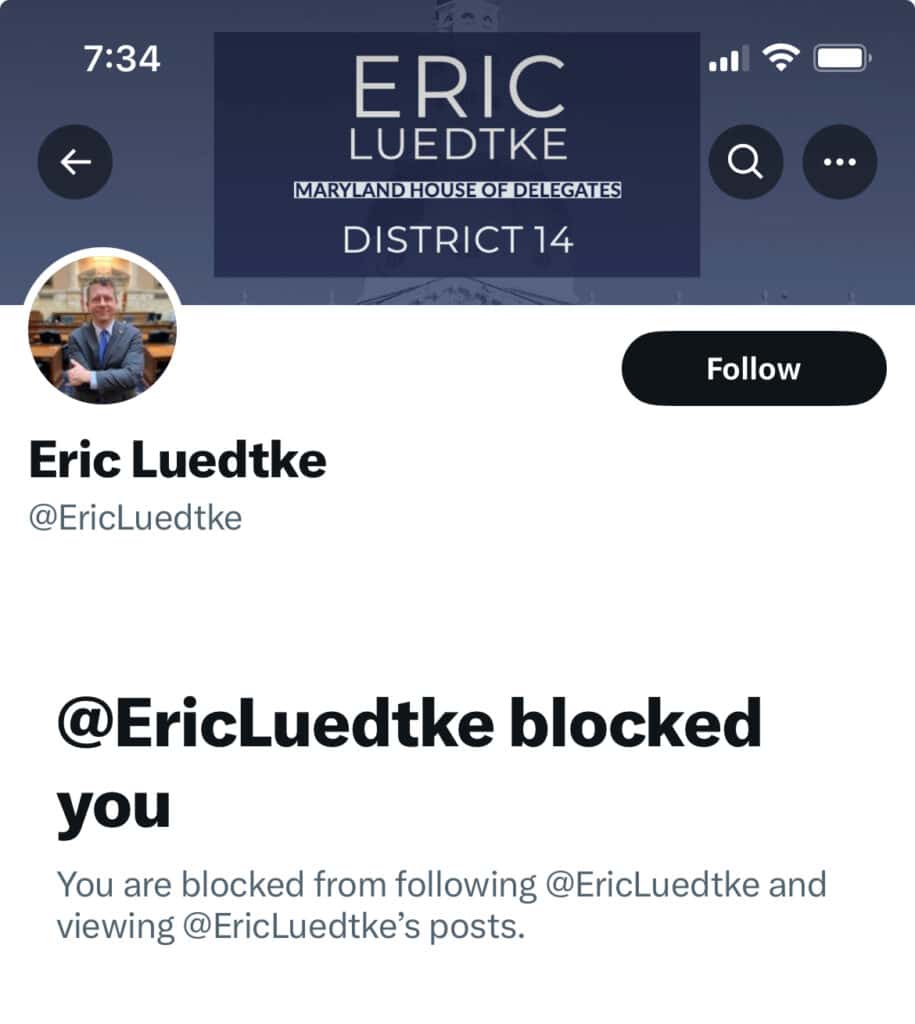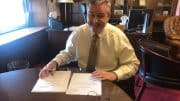The U.S. Supreme Court issued an opinion on March 15, 2024, clarifying when public officials may block people on social media platforms.
The ruling, derived from Lindke v. Freed, introduces a nuanced two-part test to determine when public officials’ actions on social media amount to state action under 42 U.S.C. Section 1983.
This test is particularly relevant for Maryland residents seeking clarity on the conditions under which public and elected officials may lawfully block individuals from their social media accounts.
While not groundbreaking, this SCOTUS decision provides essential guidelines that public officials and social media users in Maryland should be aware of to navigate the complexities of online interactions and their legal implications.
Click here to listen to the Lindke v. Freed oral argument.
Moreover, this article serves as an informative guide, shedding light on the implications of this decision for social media use by public officials in Maryland and what it means for the state’s social media users.
Click this link to read the Court’s full opinion.
The Supreme Court’s Two-Pronged Social Media Block Test
The Court’s decision essentially established a two-part test to determine whether a public official’s conduct on social media constitutes an action taken on behalf of the state, thus making them liable under Section 1983 for preventing someone from commenting on their social media pages.
For an action to be considered state action, the elected public official must:
-
- Possess actual authority to speak on the state’s behalf on the matter in question.
- Purport to exercise that authority when engaging in relevant social media posts.
This decision clarifies that not every instance of a public official blocking someone on social media equates to a Section 1983 violation, countering widespread misconceptions.
The Background of the Lindke Case
This case arose when Port Huron, Michigan’s city manager, James Freed, was sued by Kevin Lindke for blocking him on Facebook after Lindke criticized the city’s COVID-19 response.
The Supreme Court left open whether James Freed’s social media posts were considered state activity, noting they could be “mixed-use” with personal and official content.
The decision highlighted how technology affects legal considerations, such as the distinct implications of deleting comments versus blocking users, which could increase officials’ liability.
Ultimately, the High Court overturned the Sixth Circuit’s judgment to ensure the correct application of its new analytical framework.

Implications for Maryland Public Officials
The Supreme Court’s Lindke ruling demands that elected officials must meticulously manage their social media presence.
In addition, the decision emphasizes the importance of distinguishing between personal, professional, and official social media accounts to mitigate potential legal liabilities.
Elected and public officials are advised to clearly label their accounts according to their purpose (e.g., personal or official) and to refrain from making exclusive public business announcements via social media unless through designated official channels.
Furthermore, the ruling reminds us of the delicate balance between public officials’ duties and their rights as private citizens.
Officials are encouraged to maintain transparency and openness, keeping in mind the foundational principle of the public’s right to criticize government actions while navigating the legal nuances introduced by the Court.
Applying SCOTUS’ Two-Pronged Social Media Blocking Test
To determine if a U.S. elected official can block someone on social media, the Supreme Court says we need to ask two simple questions:
1. Does the official have the actual power to talk about this topic on behalf of the government?
This means examining whether laws, rules, or long-standing practices give the elected official the authority to speak about the issue.
For example, suppose the Maryland governor’s chief legislative officer talks about their work with the state and discusses policy on their social media account.
In that case, the state chief legislative officer must have the actual job responsibility. Blocking a social media user could become legally problematic for said state chief legislative officer.
But suppose the same state chief legislative officer is talking about something outside their job, like health-code violations, when it’s outside their specific area of state government.
In that case, they can block comments on their personal social media accounts without it being a government action.
2. When the elected official posted on social media, were they using their government authority?
Even if a public official has the power to discuss a subject, their social media posts are only considered government actions if they clearly use that power.
For instance, a public health official talking about health issues on Facebook only acts as a government official if their posts show they use their official authority to discuss those issues.
In summary:
- If the answer is “yes” to both questions, a Maryland elected official blocking a social media user may violate federal law.
- If the answer is “no,” then the elected official is likely acting as a private person; therefore, blocking a social media user may not be considered a government action.
Additional Examples of When Maryland Public Officials *Can* Block Social Media Users
Based on the Lindke v. Freed decision and its outlined two-part test, let’s delve into specific scenarios to illustrate when Maryland public officials can and cannot block social media users.
Personal Account, Clearly Labeled
Suppose a public official has a social media account clearly labeled as personal and used solely for non-official purposes (e.g., sharing family photos or discussing hobbies).
In that case, the official can block users from this account without following the guidelines.
This is because the account does not engage in state action or exercise authority on behalf of the state.
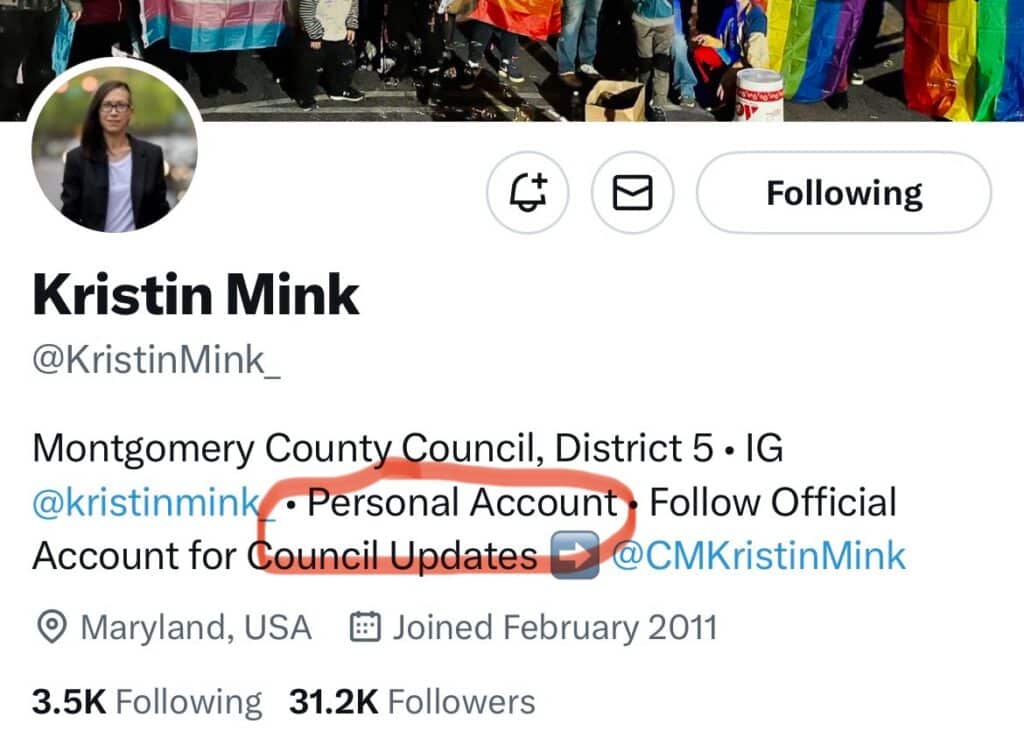
Professional Discussions Outside Official Capacity
When a public official uses a professional account to discuss topics outside the scope of their state-given authority, or if the discussion does not pertain to the specific duties of their office, blocking social media users may be permissible.
For example, a municipal city planner discussing abstract art provided this is not misleadingly intertwined with official municipal planning announcements.
Explicit Disclaimers on Mixed-Use Accounts
On an account that mixes personal and public business but carries a clear disclaimer (e.g., “Opinions are my own, not official statements on behalf of…”), the official might block users from viewing strictly personal posts, assuming these do not pertain to their official government duties or misrepresent their authority.
Instances When Maryland Public Officials *Cannot* Block Social Media Users
Official Business Announcements
If a public official makes exclusive announcements regarding public business on their social media (e.g., new policies, official updates), said public official cannot block individuals from accessing these posts.
This is considered purporting to exercise authority on behalf of the state and engaging in state action.
Engagement in Official Capacity
When an official uses social media to engage with the public on matters within their governmental role and authority (e.g., a health official discussing COVID-19 guidelines), blocking social media users who comment or inquire about these topics would likely be seen as a violation, as it pertains to the exercise of their state authority on relevant matters.
Use of Official Titles or Resources
An elected official’s social media account that utilizes official titles, resources, or logos to lend weight to the posts, making it appear as an extension of the official’s duties (even if labeled personal), should not block users.
This is because using official markers implies the account is an avenue for official communication.
To Block or Not to Block: Grey Areas and Considerations for Maryland Public Officials
Mixed-Use Social Media Accounts
Social media accounts that blend personal and official content without clear disclaimers can pose a challenge for electeds.
Public officials should tread carefully.
Blocking social media users in these instances could be interpreted as suppressing speech based on viewpoint, especially if the blocked content pertains to official business.
Custom and Practice
In scenarios where a public official’s role customarily includes public communication not explicitly defined by law (e.g., a tradition of the mayor addressing public concerns on social media), blocking could still be considered state action if it pertains to those customary duties.
Public Forums
If a social media account is designated or widely recognized as a public forum for civic engagement, blocking Marylanders from participating in discussions related to government actions could violate Marylanders’ rights, irrespective of the account’s official or personal designation.
This nuanced understanding underscores the importance of clarity, transparency, and the distinct separation of personal and official communications by public officials on social media platforms.
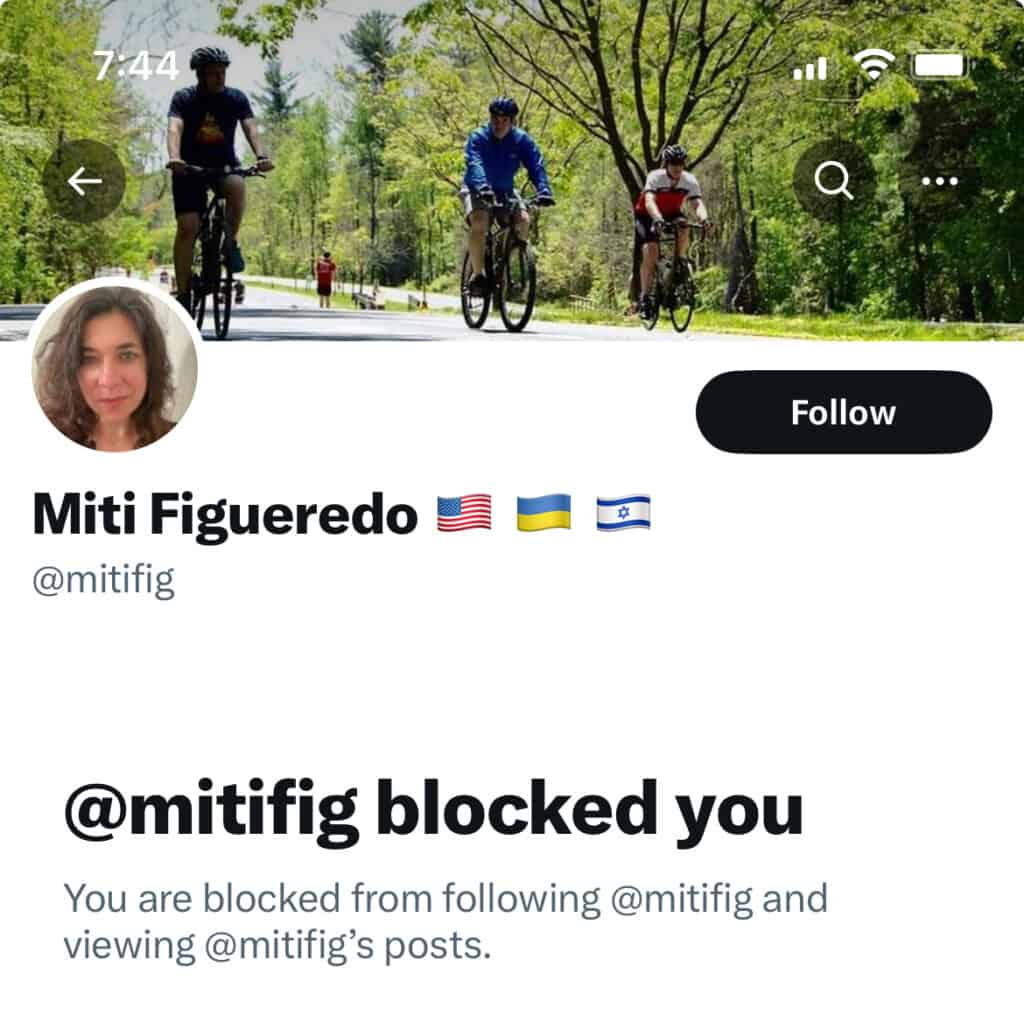
Best Practices for Maryland Public Officials for Limiting Liability
In light of SCOTUS’ Lindke v. Freed two-pronged test, Maryland officials are encouraged to:
- Clearly label and separate their social media accounts based on their purpose (personal, professional, official).
- Refrain from blocking individuals on official accounts to ensure open public discourse.
- Avoid making exclusive announcements of public business on personal or unofficial social media accounts.
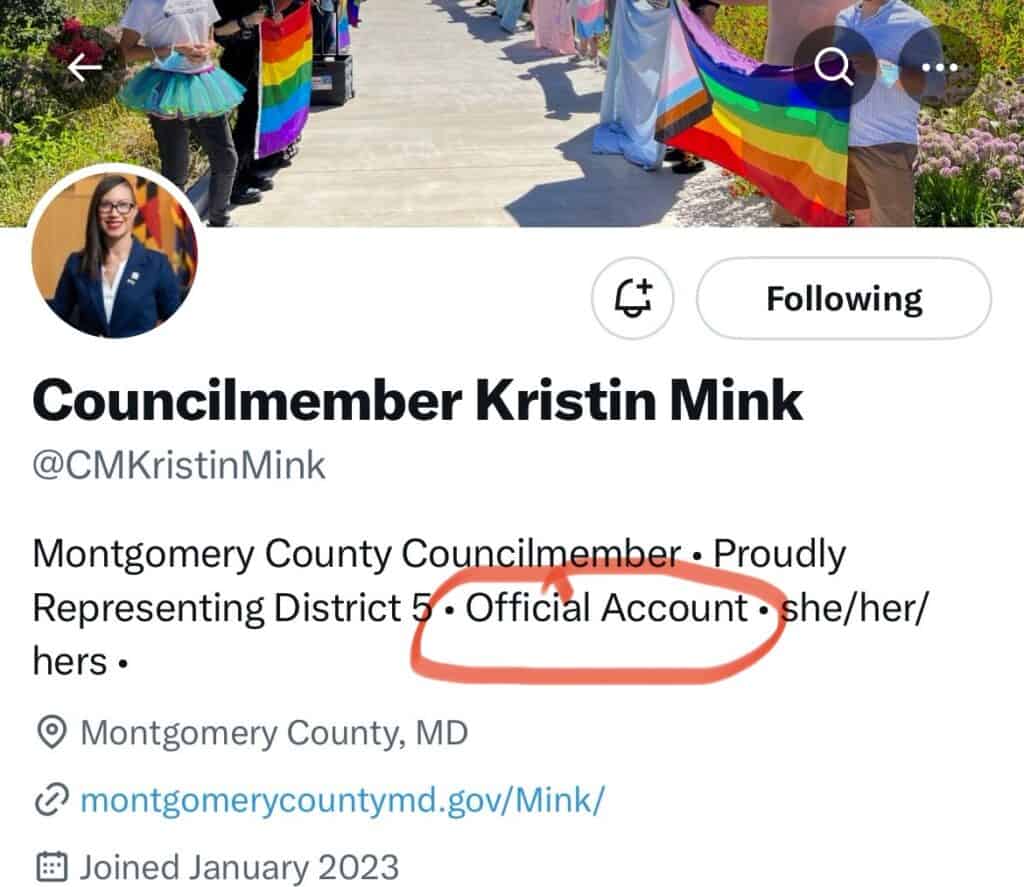
A Guiding Light for Maryland Elected Officials and Social Media Users
The Supreme Court’s nuanced approach, requiring a fact-specific inquiry into each case, underscores the evolving intersection between social media and public governance.
As public officials navigate these waters, the principles laid out in the Lindke v. Freed decision will be a guiding light in fostering an environment where digital platforms can be utilized effectively and lawfully for authentic public engagement.
As the digital age unfolds, Maryland’s political sphere finds itself at the crossroads of tradition and innovation.
The latest SCOTUS ruling not only offers clarity on the legal boundaries of online interactions but also opens up a broader conversation about the role of social media in public governance.
As we move forward, the decision is poised to shape the dynamics of political discourse in Maryland, offering a blueprint for balancing the demands of digital engagement with the imperatives of constitutional and legal accountability.
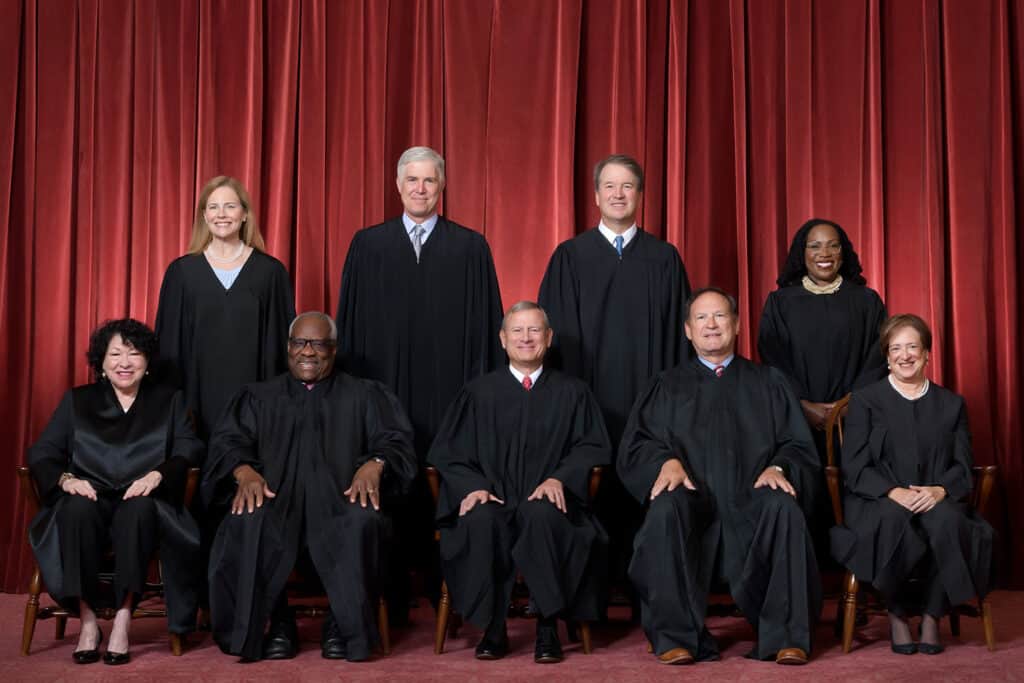
How to Take Legal Action If Blocked by a Maryland Elected Official on Social Media
Suppose you believe you’ve been illegally blocked by a Maryland elected official on social media.
In that case, there are several steps you can take to address this issue based on the legal framework established by the Supreme Court’s Lindke v. Freed decision:
1. Document the Block
You can take screenshots or gather evidence that shows you’ve been blocked from commenting or interacting with the public official’s social media account.
Documentation is crucial for any legal challenge or complaint you might file.
2. Review the Official’s Role and Posts
Assess whether the public official had the authority to speak on behalf of the state on the issue they were discussing when they blocked you.
Also, consider whether said public official acted in their official capacity or if the posts were personal. Doing so will help determine if the block could be viewed as a state action.
3. Seek Legal Advice
Consult a Maryland attorney specializing in First Amendment, social media, and/or civil rights law.
A skilled attorney can provide specific advice based on the details of your case, including whether the public official’s social media block violates your free speech rights under Section 1983.
A Miner Detail recommends contacting Maryland-based attorney David S. Wachen if an elected official has blocked you and you seek legal recourse.
Mr. Wachen’s exemplary legal career ranges from litigating a wide range of matters involving business disputes, contract issues, attacks on reputation and speech rights (e.g., defamation, privacy, First Amendment, Media Law), social media and the Internet, intellectual property, employment, business torts, class actions, insurance coverage, and professional liability/discipline.
4. Consider a Formal Complaint
An attorney may advise you to file a formal complaint or lawsuit against the elected official for violating your First Amendment rights.
This legal action may argue that you were blocked from participating in a public forum, a space meant for public discussion and debate.
5. Prepare for a Fact-specific Inquiry
Understand that whether a lawsuit or complaint proceeds will depend on a fact-specific inquiry into your case.
This means the specific circumstances of your interaction with the public official’s social media account, including the nature of the official’s posts and your comments, are crucial to consider.
6. Engage with Advocacy Groups
Some organizations and advocacy groups focus on digital rights and free speech online (e.g., the American Civil Liberties Union.)
These groups may offer support, guidance, or resources for Marylanders who believe a public official infringes on their social media rights.
7. Public Awareness
While pursuing legal recourse, consider raising public awareness about the issue.
Bringing attention to public officials’ social media practices can prompt them to reconsider blocking social media users, especially if it violates free speech principles.
It’s important to note that legal challenges based on being blocked by an elected official on social media are relatively new territory in law, and outcomes can vary based on each case’s jurisdiction and specific details.
Proceeding with a clear understanding of your rights and the Supreme Court’s legal standards will be essential in pursuing any recourse.
Disclaimer
Please note that this article is for informational purposes only and does not constitute legal advice.
If you believe you have been unlawfully blocked by an elected official on social media, or if you have any specific legal questions or concerns, it is recommended that you consult with a qualified attorney to discuss your situation.
